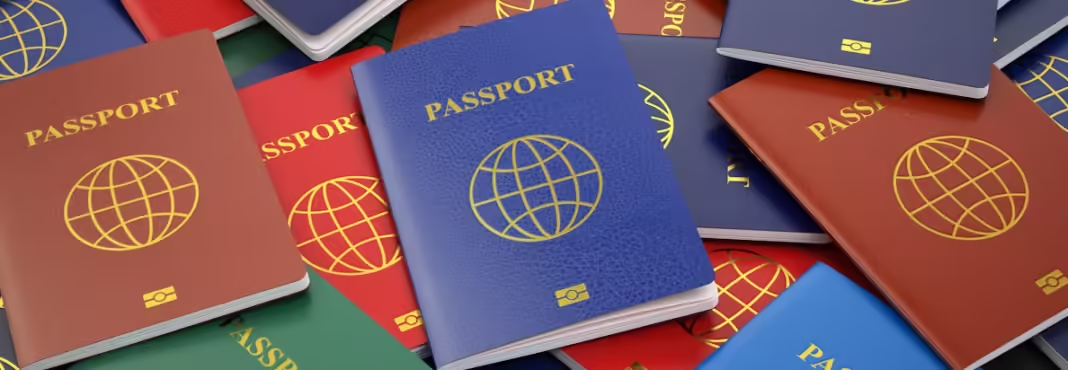Theko Tlebere
As a researcher focused on migration and development, particularly on brain drain and brain circulation in Lesotho’s health sector, my current work has helped me immensely in understanding how nations can leverage the mobility of skilled citizens to drive national growth. My doctoral study investigates how Basotho health professionals in the diaspora, especially in the United Kingdom and South Africa, can significantly contribute to revitalising Lesotho’s health system through structured brain circulation mechanisms. Even though brain circulation is broader than just the health sector, the recent debates in Lesotho’s Parliament about dual citizenship have raised a critical question: should citizenship be viewed as a rigid legal status, or as a developmental bridge connecting the homeland and its diaspora? This article contends that dual citizenship is a strategic tool for facilitating brain circulation rather than a mere political concession. Drawing on Lesotho’s Eighth Amendment to the Constitution Act of 2018, I argue that constitutional reform has established a foundation for a modern, inclusive citizenship model that can transform emigration into a sustainable source of national development.
For most of the post-independence period, Lesotho, like many African nations, has suffered from significant brain drain. Skilled workers, particularly in the medical, engineering, and education sectors, have left in search of better opportunities abroad. This exodus of human capital has weakened institutional capacity and hindered progress toward national development goals. However, the global discourse on migration has evolved. Scholars such as Meyer (2001) and Saxenian (2005) introduced the concept of brain circulation, which re-frames mobility as a reciprocal exchange rather than a permanent loss, allowing for the movement of ideas, technologies, and investments between host and home countries. Under this framework, migrants are viewed not as defectors but as transnational agents of development who can enhance both their countries of origin and their host nations.
For Lesotho, brain circulation signifies a transition from not only reliance on remittances to fostering knowledge transfer, institutional collaboration, and innovation. This transformation necessitates a legal framework that allows migrants to maintain enduring ties to their homeland, precisely what dual citizenship achieves. In 2018, Lesotho made a historic move toward embracing global citizenship with the Eighth Amendment to the Constitution Act (No. 8 of 2018). This amendment repealed the restrictive Section 41 of the 1993 Constitution and replaced it with a more inclusive provision:
Section 41(1): “A citizen of Lesotho may hold citizenship of any other country in addition to his citizenship of Lesotho.”
This clause represents a paradigm shift in Lesotho’s constitutional philosophy, explicitly permitting dual nationality and acknowledging that global mobility is compatible with national loyalty.
The amendment also introduced Section 41A (“Restoration of Lesotho Citizenship”), which allows Basotho who lost their citizenship by acquiring another nationality to automatically regain it. This provision was designed to “facilitate the return and reintegration of Lesotho citizens by birth or ancestry who lost their citizenship,” as stated in the Statement of Objects and Reasons published in the Government Gazette on December 21, 2018.
In essence, the 2018 constitutional reform legitimised the principle that national identity and global belonging can coexist. Yet, Lesotho has not fully implemented this progressive vision or integrated it into broader migration and development policies. Dual citizenship serves as a policy enabler for brain circulation through interconnected social, economic, and institutional mechanisms that reinforce each other.
First, it facilitates knowledge and skills transfer by allowing skilled Basotho to engage freely in short-term return programs, medical exchanges, and research collaborations without facing legal or administrative barriers. For example, a Mosotho doctor working in the United Kingdom could periodically serve in Lesotho’s hospitals or universities under professional exchange schemes. Retaining full citizenship ensures that such engagements occur within a framework of mutual recognition and continuity, rather than as sporadic acts of goodwill.
Dual citizenship also enhances investment and entrepreneurship by fostering a sense of permanence and trust between diaspora investors and their homeland. When individuals maintain legal ownership rights, they are more inclined to invest in property, businesses, and innovation. Empirical evidence from Ghana and Rwanda indicates that recognising dual citizenship has significantly boosted diaspora investments and enterprise creation. Lesotho could experience similar benefits through targeted incentives and investment-friendly reforms grounded in the rights guaranteed by Section 41 of the Constitution (as amended).
Furthermore, dual citizenship promotes institutional collaboration and global partnerships. Citizens who legally belong to both Lesotho and another country can act as intermediaries between domestic institutions and international networks, leading to research partnerships, university linkages, and technical exchanges that expand Lesotho’s access to global expertise and funding. The experiences of returning scholars and professionals in China and India illustrate how dual belonging can drive national innovation ecosystems.
Beyond these economic and institutional benefits, dual citizenship contributes to the restoration of national identity. The inclusion of Section 41A in the Eighth Amendment acknowledges that Basotho who renounced their citizenship remain integral members of the national community. By allowing them to automatically regain their nationality, the Constitution affirms that belonging is not diminished by mobility. It recognises that migration is part of the Basotho narrative and that legal reintegration strengthens the emotional and civic bonds necessary for sustained national unity.
Critics of dual citizenship often frame it as a threat to national sovereignty or loyalty. However, as evidenced by the 2018 Amendment, sovereignty in the 21st century is exercised through strategic inclusion rather than exclusion. The Statement of Objects and Reasons in the Gazette clarifies that the Bill is aimed at “removing the constitutional prohibition on dual citizenship” and facilitating the “return and reintegration” of Basotho abroad.
Far from undermining the state, this legal recognition enhances it by expanding Lesotho’s human capital base and strengthening its soft power through citizens embedded in global networks. Moreover, the amendment includes safeguards: under Section 41(2)(b) and Section 41A(3), dual citizens are restricted from holding certain state positions, ensuring that public office remains aligned with constitutional accountability. Thus, Lesotho’s law strikes a balance between loyalty and participation.
To operationalise the spirit of the 2018 constitutional amendment, Lesotho should integrate dual citizenship into a broader National Brain Circulation Strategy, aligned with the National Diaspora Policy (2021) and National Migration and Development Policy (2022). This could involve establishing a Diaspora Skills Database to map Basotho professionals abroad, creating short-term professional return programs in key sectors such as health, education, and ICT, and introducing fiscal incentives for diaspora investment and innovation.
Additionally, Lesotho should negotiate bilateral health workforce agreements with countries hosting Basotho professionals to ensure knowledge transfer through structured exchange programs. A Diaspora Innovation Fund could also be established to support collaborative research and entrepreneurship projects between local institutions and Basotho abroad. Through these initiatives, dual citizenship would become a practical mechanism for national development rather than merely a symbolic constitutional provision.
Lesotho’s Eighth Amendment to the Constitution Act of 2018 signaled the nation’s readiness to adopt inclusive citizenship. However, the potential of this reform remains underutilised. When properly implemented, dual citizenship is not a threat to sovereignty; it is a vehicle for national resilience.
For a country grappling with chronic human capital flight, enabling Basotho to belong legally to both their homeland and their adopted countries is the most effective way to achieve brain circulation, a dynamic exchange of skills, knowledge, and resources that propels development. As Lesotho seeks to modernise its economy and institutions, dual citizenship should be viewed not as a concession to globalisation, but as a strategic investment in its people, both at home and abroad who together constitute the nation’s greatest asset. The future is NOW!
Summary
- As a researcher focused on migration and development, particularly on brain drain and brain circulation in Lesotho’s health sector, my current work has helped me immensely in understanding how nations can leverage the mobility of skilled citizens to drive national growth.
- Drawing on Lesotho’s Eighth Amendment to the Constitution Act of 2018, I argue that constitutional reform has established a foundation for a modern, inclusive citizenship model that can transform emigration into a sustainable source of national development.
- This provision was designed to “facilitate the return and reintegration of Lesotho citizens by birth or ancestry who lost their citizenship,” as stated in the Statement of Objects and Reasons published in the Government Gazette on December 21, 2018.

Your Trusted Source for News and Insights in Lesotho!
At Newsday Media, we are passionate about delivering accurate, timely, and engaging news and multimedia content to our diverse audience. Founded with the vision of revolutionizing the media landscape in Lesotho, we have grown into a leading hybrid media company that blends traditional journalism with innovative digital platforms.







